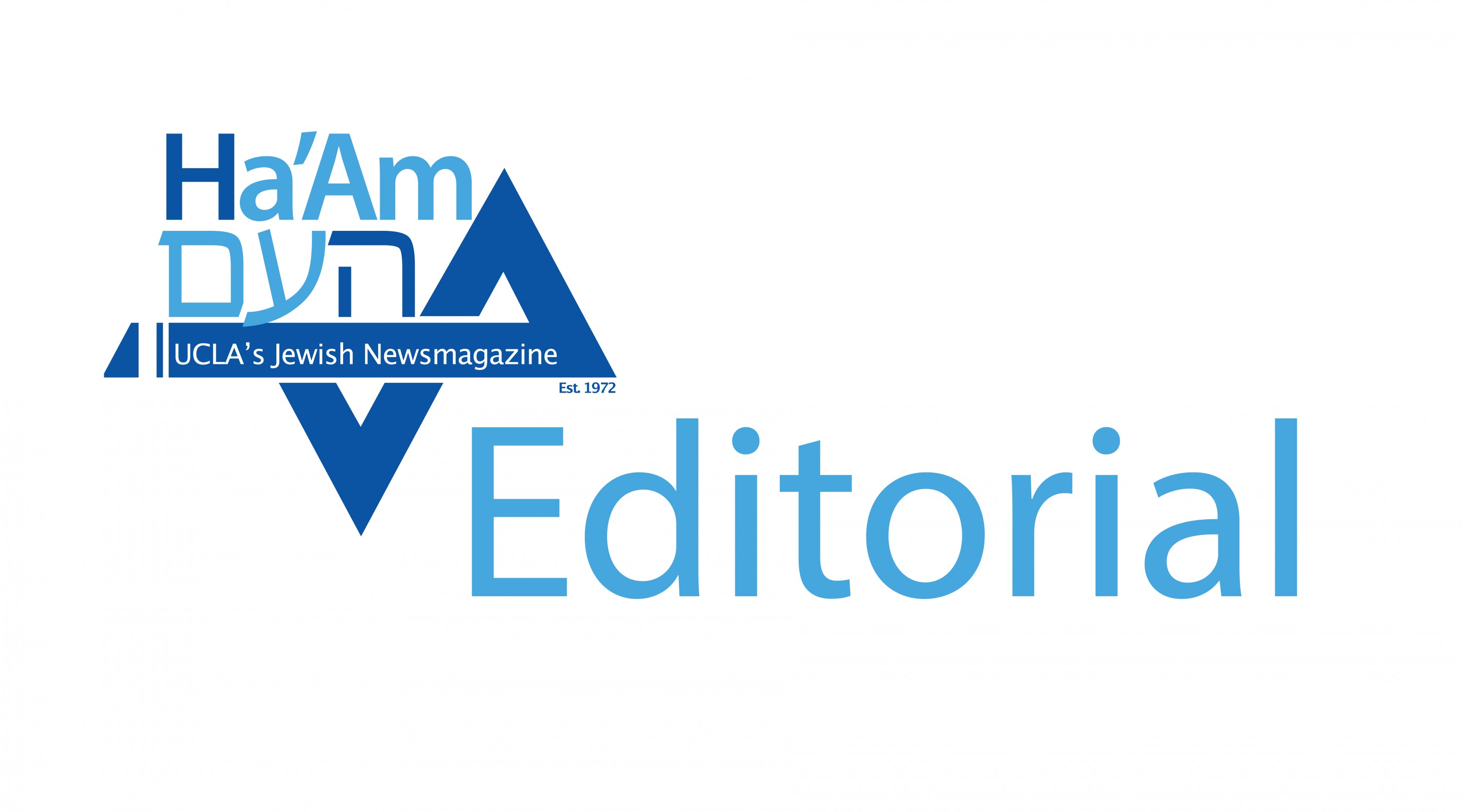Despite centuries of hostility and animosity, it is always a refreshing endeavor to explore the many similar experiences and values shared by the Abrahamic faiths. Of central importance to all Abrahamic religions is the sanctity of the spoken and written word. After all, in our shared story of Creation, the word of God was potent and forceful enough to manifest the world anew. Such potential and power also carries the capacity to use the spoken word for unprecedented destruction. Systematic campaigns of abusive and slanderous language have the ability to undermine even the most well-intentioned dialogues and result in a pervasive climate of mistrust and indignity. The devolution of language on campus is frightening. Our lexicon seemingly no longer supports language of respect, understanding and empathy; instead, language on campus has manifested itself into a vehicle of derision, slander, and petty political maneuvering.
On campus, too, the sanctity of language must guide our relationship to one another and the larger campus community. Understandably and rightfully so, campus represents the perfect foreground to explore the nuances of and solutions to many of the most endemic social and political quandaries. The notion of receiving free trips from organizations determined to educate student leaders — a hot debate on campus — is a topic ripe for a meaningful discussion. The influence of any third party organization that could potentially influence our seemingly delicate campus political system is worth a mature and comprehensive debate. Currently, there is a discussion about whether free or sponsored trips (without obligatory strings attached), should be included under the category of conflict of interest. However, as it currently stands, only trips to Israel with Jewish/pro-Israel organizations have been scrutinized in this discussion. Recently, several groups who have supported anti-Zionist and pro-BDS sentiments have drafted a document asking for USAC candidates’ pledges to not take trips specifically with pro-Israel organizations. When such a ban aims at a particular group on campus — as this one does — it serves to undermine the central force of the argument. Instead, it becomes a targeted attack on identity and not a wholesome debate about undue influence.
This current Undergraduate Student Association Council election cycle has seen an abundance of systematic language abuse. Certain buzzwords have become commonplace to label candidates as hateful bigots. Sustaining the brunt of the attacks is Internal Vice President Candidate Avinoam Baral (though he is not alone), who was slanderously depicted as Islamophobic through several degrees of association, stemming from his participation in a trip to Israel sponsored by Hasbara Fellowship, a pro-Israel campus partner organization. This extrapolation arises despite Baral’s track record of defending the Muslim community, exemplified in the midst of the divisive Israel-Palestine arguments during the public comments section of the Feb. 25 USAC meeting. Instead of using the time allotted for a final presentation to emphasize the anti-divestment stance, Baral chose to publicly denounce Islamophobic speech that was made during public comments.
On a campus as multi-faceted and diverse as our own, the varied cultures, identities and religious denominations stand as the lifeblood of our collegiate careers. In the strongest possible terms, no student is welcomed to participate in the campus dialogue if he or she does not respect and seek to accommodate the identities and cultures of others. The timing and underlying logic of such hate-labeling warrants a necessary question: Are we appropriately using language as a source of trust, meaning and mutual respect? Or does a campaign of presumed hateful-until-proven-otherwise stand as an effort to use language for political expediency?
In one instance, the Muslim Student Association published an official press statement condemning Islamophobic speech, and asked council members and student groups to sign in solidarity. While the underlying idea of denouncing Islamophobia is a laudable one, the statement included language that was offensive to students who support the Jewish state of Israel. The statement puts forth a distinction between anti-Zionism and anti-Semitism, with which Bruins for Israel, Hillel at UCLA, and Avi Oved, the current USAC IVP for whom Baral is chief of staff, do not agree. Those questioning these Jewish organizations and representatives fail to take into account the gravity of the offending language, and cite their lack of official support as an instance of Islamophobia, rather than recognizing that the language used undermines the identity of most Jewish students, which is predicated on the connection between Israel and Judaism. For those seeking respect, it is necessary to give the same respect to others in both language and action.
We must not let our drive to excoriate hate impede our ability to retain a meaningful campus dialogue. How we label one another bespeaks immensely to our underlying motives and goals. When we actively and creatively seek to find hate in others, what prospect is there for mutual respect? All too often, abuse of language has served as a pretext for larger and more tragic conflicts. Politics aside, safeguards must be taken to ensure that our civility and decency are not substituted with hateful-labels and vitriol. After all, if the world could be created on the power of a word, then how much damage could it do to our campus?


“the statement puts forward a distinction between anti-zionism and anti-semitism.” Hmm did not see that anywhere in the article. Can the Ha’am editorial board members, with their superhuman vision, please enlighten me?
The reference is to the MSA official press statement:
“As the Muslim Student Association…we recognize that Judaism and Zionism are not synonymous, and that even any anti-Zionist sentiment misattributed to the pro-resolution cause should not give way to anti-Semitic rhetoric.”